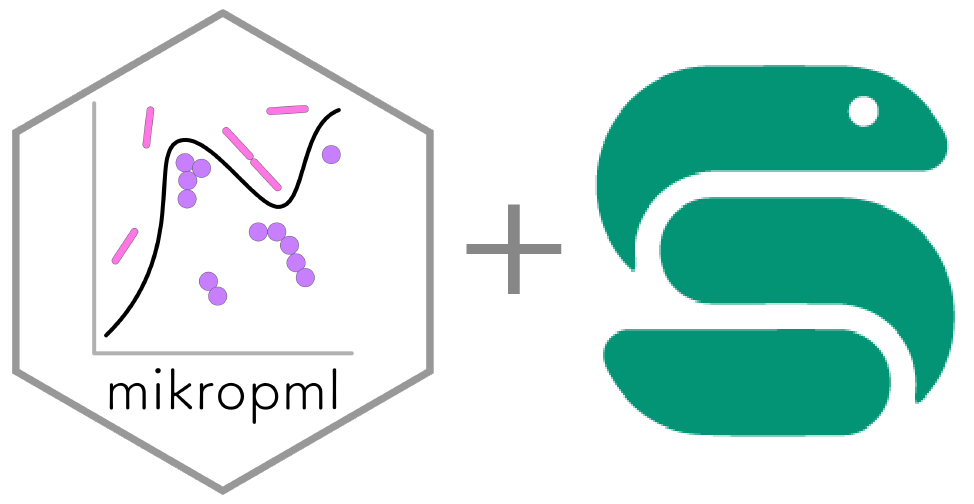meek-ROPE em el
User-Friendly R Package for Supervised Machine Learning Pipelines
An interface to build machine learning models for classification and
regression problems. mikropml implements the ML pipeline described by
Topçuoğlu et al. (2020)
with reasonable default options for data preprocessing, hyperparameter
tuning, cross-validation, testing, model evaluation, and interpretation
steps. See the website for more
information, documentation, and examples.
You can install the latest release from
CRAN:
install.packages('mikropml')or the development version from GitHub:
# install.packages("devtools")
devtools::install_github("SchlossLab/mikropml")or install from a terminal using
conda or
mamba:
mamba install -c conda-forge r-mikropml- Imports: caret, dplyr, e1071, glmnet, kernlab, MLmetrics, randomForest, rlang, rpart, stats, utils, xgboost
- Suggests: assertthat, doFuture, forcats, foreach, future, future.apply, furrr, ggplot2, knitr, progress, progressr, purrr, rmarkdown, rsample, testthat, tidyr
Check out the introductory vignette for a quick start tutorial. For a more in-depth discussion, read all the vignettes and/or take a look at the reference documentation.
You can watch the Riffomonas Project series of video tutorials covering mikropml and other skills related to machine learning.
We also provide a Snakemake
workflow for
running mikropml locally or on an HPC. We highly recommend running
mikropml with Snakemake or another workflow management system for
reproducibility and scalability of ML analyses.

If you come across a bug, open an issue and include a minimal reproducible example.
If you have questions, create a new post in Discussions.
If you’d like to contribute, see our guidelines here.
Please note that the mikropml project is released with a Contributor Code of Conduct. By contributing to this project, you agree to abide by its terms.
The mikropml package is licensed under the MIT license. Text and images included in this repository, including the mikropml logo, are licensed under the CC BY 4.0 license.
To cite mikropml in publications, use:
Topçuoğlu BD, Lapp Z, Sovacool KL, Snitkin E, Wiens J, Schloss PD (2021). “mikropml: User-Friendly R Package for Supervised Machine Learning Pipelines.” Journal of Open Source Software, 6(61), 3073. doi:10.21105/joss.03073, https://joss.theoj.org/papers/10.21105/joss.03073.
A BibTeX entry for LaTeX users is:
@Article{,
title = {{mikropml}: User-Friendly R Package for Supervised Machine Learning Pipelines},
author = {Begüm D. Topçuoğlu and Zena Lapp and Kelly L. Sovacool and Evan Snitkin and Jenna Wiens and Patrick D. Schloss},
journal = {Journal of Open Source Software},
year = {2021},
volume = {6},
number = {61},
pages = {3073},
doi = {10.21105/joss.03073},
url = {https://joss.theoj.org/papers/10.21105/joss.03073},
}
The word “mikrop” (pronounced “meek-ROPE”) is Turkish for “microbe”. This package was originally implemented as a machine learning pipeline for microbiome-based classification problems (see Topçuoğlu et al. 2020). We realized that these methods are applicable in many other fields too, but stuck with the name because we like it!





